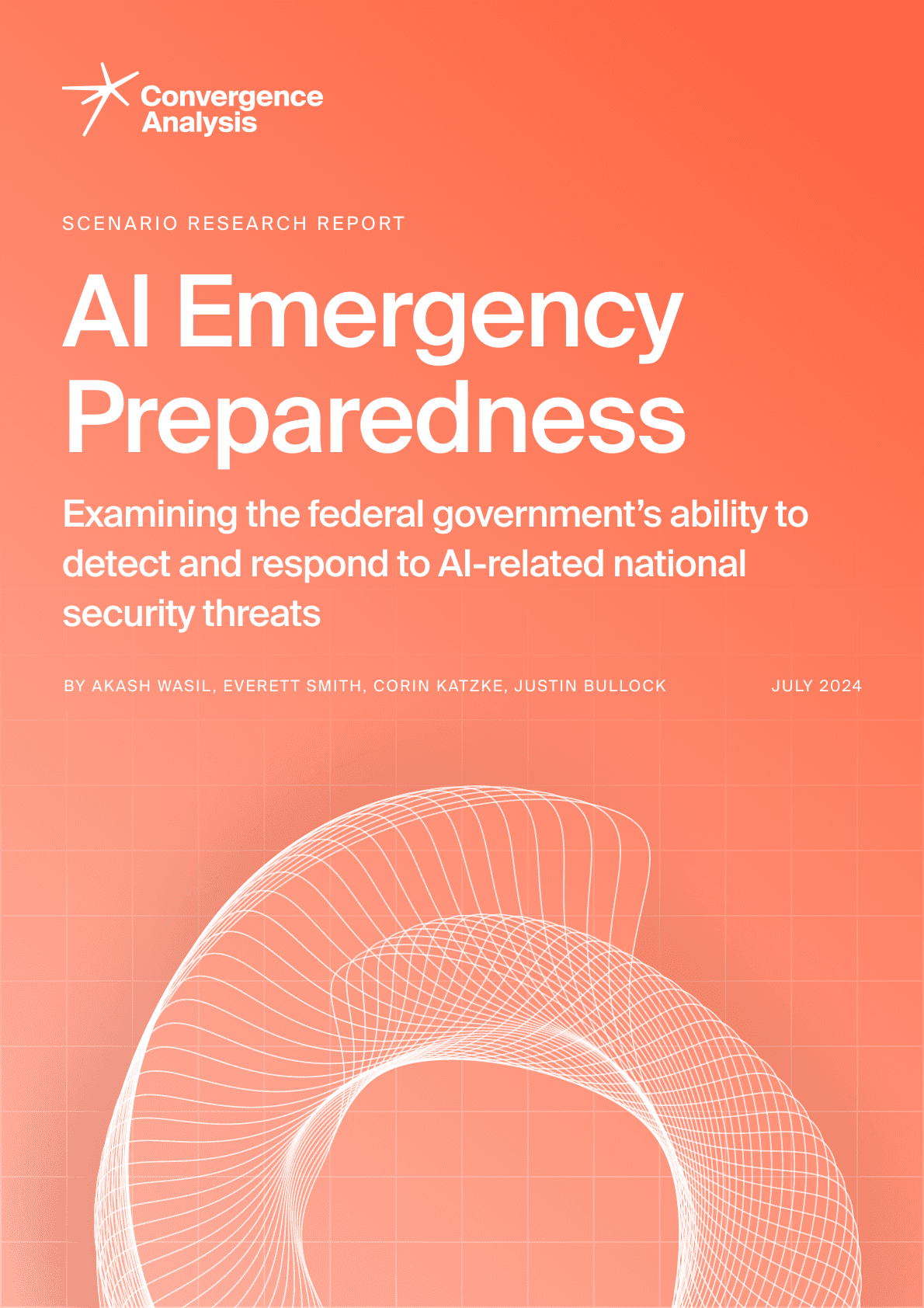Scenario Research Report
AI Emergency Preparedness
Examining the federal government’s ability to detect and respond to AI-related national security threats.
By
Akash Wasil
, Everett Smith
, Corin Katzke
, Justin Bullock
July 11, 2024
Authors
Originally Published
July 11, 2024
Research program
Citation
Wasil, Akash et al. AI Emergency Preparedness: Examining the federal government's ability to detect and respond to AI-related national security threats. July 3, 2024. https://ssrn.com/abstract=4884541
Abstract
We examine how the federal government can enhance its AI emergency preparedness: the ability to detect and prepare for time-sensitive national security threats relating to AI. Emergency preparedness can improve the government's ability to monitor and predict AI progress, identify national security threats, and prepare effective response plans for plausible threats and worst-case scenarios. Our approach draws from fields in which experts prepare for threats despite uncertainty about their exact nature or timing (e.g., counter-terrorism, cybersecurity, pandemic preparedness). We focus on three plausible risk scenarios: (1) loss of control (threats from a powerful AI system that becomes capable of escaping human control), (2) cybersecurity threats from malicious actors (threats from a foreign actor that steals the model weights of a powerful AI system), and (3) biological weapons proliferation (threats from users identifying a way to circumvent the safeguards of a publicly-released model in order to develop biological weapons.) We evaluate the federal government's ability to detect, prevent, and respond to these threats. Then, we highlight potential gaps and offer recommendations to improve emergency preparedness. We conclude by describing how future work on AI emergency preparedness can be applied to improve policymakers' understanding of risk scenarios, identify gaps in detection capabilities, and form preparedness plans to improve the effectiveness of federal responses to AI-related national security threats.
Get research updates from Convergence
Leave us your contact info and we’ll share our latest research, partnerships, and projects as they're released.
You may opt out at any time. View our Privacy Policy.




